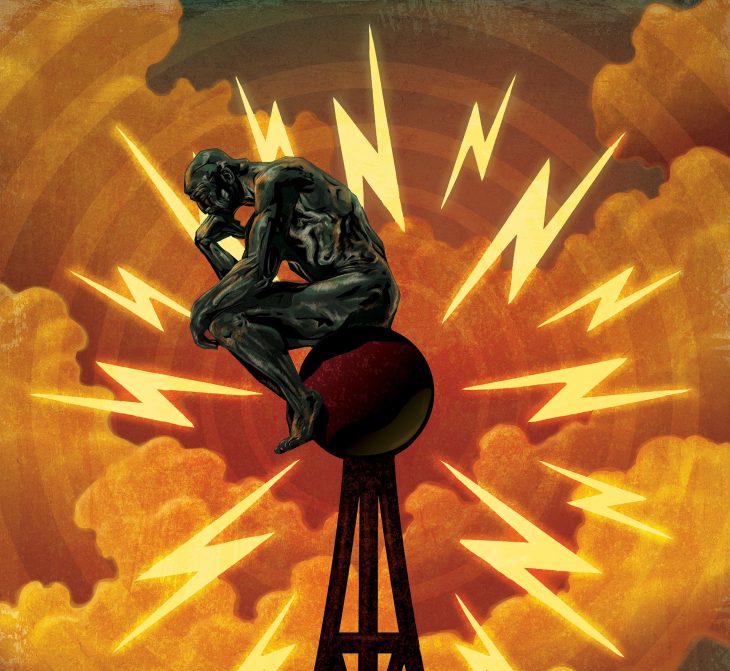
Bill C-10 and Canadian ownership rules
By Len St-Aubin
BILL C-10 WOULD REMOVE from the Broadcasting Act the requirement that “the Canadian broadcasting system shall be effectively owned and controlled by Canadians”.
Would that change lead to foreign ownership of Canadian broadcasters? Answer: No.
But it’s the wrong question to ask. The better questions, so far left unasked, are:
- Would Bill C-10 make it easier to remove Canadian ownership rules? Answer: Yes.
- Would Bill C-10 drive broadcasters to seek removal of Canadian ownership rules? Answer: Yes, and C-10 would make it tough for the government to refuse.
- Would that impact Canadian ownership in related areas like telecommunications and Canadian content? Answer: Yes and yes.
In response to the first question, the Minister and Canadian Heritage officials have quite reasonably explained how this change is necessary if the Act is to capture foreign online streamers within the broadcasting system. Quite rightly, too, they have argued this change would not, in itself, lead to foreign ownership of Canadian broadcasters. In support, they have noted that Bill C-10 provides for licensing of radio and TV broadcasters, and referenced the 1997 direction to the CRTC that defines Canadian ownership and control of broadcasting licensees.
What they have not said is, with this amendment to the Act, the 1997 direction would be the only thing preventing foreign ownership. And, unlike legislation, a government could change or repeal that direction quickly and without Parliamentary approval. So, intentionally or otherwise, Bill C-10 enables change or repeal of Canadian ownership rules for Canadian broadcasters.
What they have not addressed is that Bill C-10 would drive Canadian broadcasters to demand change or repeal by promoting foreign competition in the formerly closed, domestic, broadcasting system. That has never before been a feature of Canadian broadcasting policy. Bill C-10 would change that — and not without consequence.
What’s a “level playing field”?
The phrase has been relied upon repeatedly to justify Bill C-10’s capture of foreign services. (I’ve stopped counting.)
It is not, however, a level playing field when public policy:
- forces licensed Canadian broadcasters — which are subject to Canadian ownership rules (a.k.a. foreign investment restrictions) — to compete head-to-head with well-financed global streamers for the most high-cost, high-risk, and therefore subsidized, Canadian content: Scripted fiction and documentaries; and
- expects Canadian broadcasters to continue to be required to be licensed, and subject to those foreign investment restrictions, while “registered” online competitors — Canadian and foreign — are not.
From its inception, Canadian broadcasting policy has been a struggle against prevailing market forces: restricting access to foreign broadcasters; which enabled Canadian-owned broadcasters to acquire popular foreign content; which, in turn, generated the revenues they need to finance the Cancon they are required to produce and exhibit.
That model is eroding. The broadband internet enables global direct-to-consumer distribution, and puts a premium on exclusive original content. Already, long-time suppliers to Canadian broadcasters like Paramount+ (ViacomCBS), Disney+ and hayu (NBCU) are serving Canadians directly with premium content not available to broadcasters.
“Bill C-10’s outsourcing to foreign streamers of responsibility for financing, production and exhibition of Cancon, will obliterate any remaining policy rationale for Canadian ownership of broadcasters.”
Under Bill C-10, Canadian broadcasters, and foreign streamers that comply, will compete head-to-head not only for popular foreign content but for the best Cancon, too — and for Canadian audiences. For broadcasters, foreign investment restrictions (FIR) will be a competitive disadvantage. So too will ongoing expectations for local news and public affairs (already money-losers). Moreover, despite its purported “flexibility” Bill C-10, and the proposed Policy Direction released by the Minister, promise more — not less — regulation.
The CRTC will be enjoined to ensure spending obligations for Cancon in English, French and Indigenous languages, and representative of racialized, ethnocultural and LGBTQ2+ communities. And those burdens will fall most heavily on Canadian broadcasting licensees.
Given Bill C-10’s outcomes, it will be virtually impossible for this government, or the next, not to repeal FIR. Moreover, Bill C-10’s outsourcing to foreign streamers of responsibility for financing, production and exhibition of Cancon, will obliterate any remaining policy rationale for Canadian ownership of broadcasters.
Telecommunications comes next
Once dropped for broadcasters, repeal of FIR for telecoms carriers would be a slam-dunk. Carriers own the major broadcasting groups; Canada’s major trading partners long ago removed FIR for telecommunications; and Canada has already liberalized telecoms FIR, allowing foreign carriers with under 10% market share.
Then there’s Canadian content. It’s complicated
Public policy requires Canadian ownership of Cancon in two ways. First, a Canadian independent producer must own the intellectual property (IP) for a production to be eligible for Cancon tax credits, CMF financing, and subsidies. Second, the CRTC requires Canadian ownership for Cancon that it certifies — mostly content that broadcasters produce for themselves. (Treaty co-productions get special treatment, but let’s not go there…)
In practice, broadcasters may own up to 90% or more of the Cancon that they must finance. CRTC data show 65% to 70% of their Cancon spend goes to in-house news, information and sports (only the latter being profitable); up to 20% goes to reality and lifestyle programs either produced in-house or by affiliated producers; up to 15% goes to independently-produced scripted fiction and documentaries that benefit from Cancon tax credits, CMF financing and subsidies.
So, Bill C-10 presents a policy and regulatory dilemma.
Under current policies, imposing Cancon obligations on foreign streamers would require them to spend hundreds of millions of dollars (30% of gross revenues in Canada says Minister Guilbeault) entirely on IP that they cannot own. Since broadcasters can own 90% or more of their Cancon obligation, that outcome would be discriminatory under Canada’s trade obligations, and invite retaliation.
So, it’s no surprise the draft policy direction to the CRTC includes a reference to Canada’s trade obligations. It directs the CRTC to examine how it defines Canadian programs, taking into account Canadian IP ownership, and that “global, not just Canadian, broadcasting undertakings are included in the regulatory system.” It also directs the CRTC to take into account the government’s other Cancon policies, notably tax credits.
There are basically two ways the CRTC can solve the government’s Bill C-10 dilemma:
- match foreign streamers’ Cancon obligations to broadcasters’ obligations for independent productions (i.e.: Cancon they cannot own — about 7.5% of gross revenues); or
- find a way to allow foreign streamers to somehow own at least some of the Cancon they will be required to finance.
The first is the simplest and least susceptible to trade challenge and retaliation.
As for the second, the draft policy direction’s reference to tax credit policy may provide a hint. Cancon tax credit criteria require a Canadian producer have a guaranteed first exhibition “window” in Canada to access financing. Until recently, that meant only a Canadian broadcaster. A few years ago, the criteria were changed to allow recognized foreign streamers to provide that first window in Canada — as long as the foreign streamer acquires the rights from a Canadian distributor. A foreign streamer can acquire first-window world rights for Cancon — but not outright “own” the IP where previously, they could acquire only first window rights excluding Canada.
“It’s one thing to apply such a scheme to a relatively small number of certified Cancon productions. It’s quite another to try to shoehorn into it hundreds of millions of dollars in annual spending.”
What does this mean? In practice, if a foreign streamer invests enough in a Cancon production, it can negotiate world rights, including Canada, for what it considers to be the production’s expected shelf life, say five to 10 years. Canadian producers often have affiliated distributors who invest-in and/or hold Cancon rights, so the Canadian producer/distributor retains IP — post global streaming. Some might characterize that as a work-around.
The draft direction seems to imply the CRTC could follow suit. For example, it could recognize as Cancon a production made by a Canadian producer, that meets other Cancon criteria, but is principally financed by a foreign streamer that acquires world rights.
Would that work? It’s one thing to apply such a scheme to a relatively small number of certified Cancon productions. It’s quite another to try to shoehorn into it hundreds of millions of dollars in annual spending.
The CMPA, on behalf of independent producers, is already lobbying the government and the CRTC, to impose “terms of trade” that would strengthen their negotiating position vis-à-vis streamers with respect to IP. So, that scheme may not suit them.
For global streamers, any level of Cancon obligations means interference in their creative and business decision-making, and business practices — even if they could own IP outright. From their perspective, the lower the obligation the better, especially if they are forced to work through third parties, with additional costs and overhead.
even if they could own IP outright. From their perspective, the lower the obligation the better, especially if they are forced to work through third parties, with additional costs and overhead.
The government is offloading this thorny issue to the CRTC. Whatever the outcome, expect challenges, and possibly the threat of trade retaliation. Bill C-10 doesn’t allow appeals to Cabinet for decisions related to online streamers, so challenges will go straight to the courts.
Decades of introducing foreign competition into telecommunications markets have demonstrated that it is not without consequence. Whether or not one supports Canadian ownership policies, public policy should be transparent as to outcomes. In that respect, Bill C-10 fails.
Consultant Len St-Aubin (right) concluded his most recent client commitment as of 31 Dec. 2020. The views expressed in this opinion are his alone. Formerly he was director general, telecommunications policy, at Industry Canada, he was also a member of the policy teams that developed both the 1991 Broadcasting Act and the 1993 Telecommunications Act.


